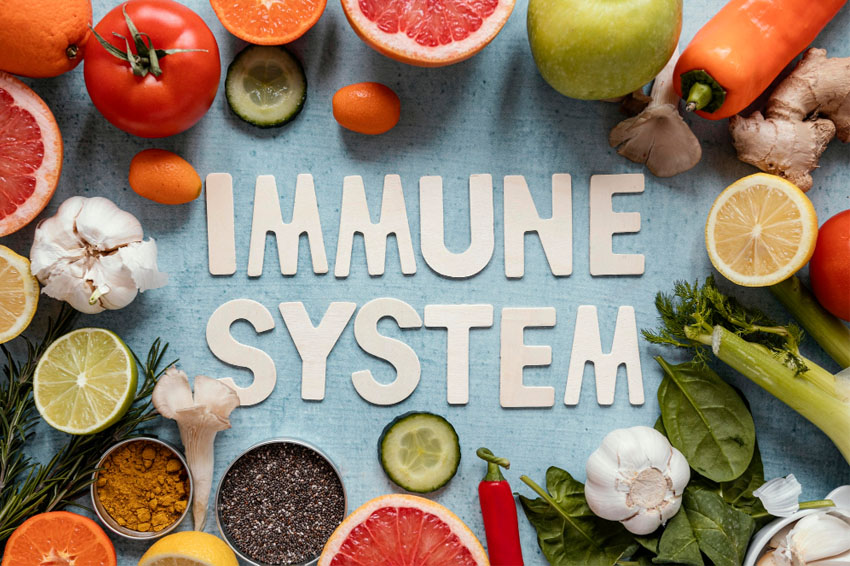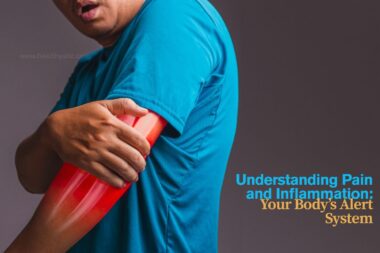Developing a strong immune system is a wise goal, and the occurrences of the COVID-19 pandemic have served as a powerful reminder of why you should prioritize it. The weaker your body’s defenses are, the more easily your life may be interrupted by whatever condition is going around — and although COVID-19 has done a lot of harm, we have always been surrounded by illnesses that have the potential to be destructive.
However, at a time when being able to fight off illnesses is more vital than ever, most of us have poorer immune systems than our predecessors.
There’s no need to fear, however, because your immune system isn’t set in stone: by addressing the problems that are weakening it, you can strengthen your defenses and be prepared for anything that comes your way.
In this post, we’ll look at the items that are harming your immune system. You may give yourself a lift if you execute the following actions:
Inadequate or poor nutrition
Throughout difficult times, it’s easy to slip into unhealthy, less-than-nutritious habits, such as habitually grabbing fast food after a hard workday or bingeing on alcohol on the weekends – these behaviors can influence your immune response.
Try to incorporate more of your favorite fruits and veggies into your normal meal cycle.
If you can’t obtain what you need from your diet, try taking supplements. You may have mostly heard of vitamins and supplements for immune support in the setting of supplying supplements for school children (getting kids to eat properly can be difficult), but they’re also beneficial for adults.
Even if just the infrequent multivitamin will help, you should consult a nutritionist to see if you have any obvious deficiencies that need to be clarified.
Daily anxiety or stress
Stress is a condition that we all experience to varying degrees. Light stress is beneficial since it pushes you to succeed and keeps you motivated. Heavy stress, on the other hand, or anxiety that you experience on a daily is entirely another proposition.
That type of stress may produce a slew of issues, interfering with your physical processes and making it difficult to get anything done.
If you can tackle the sources of your stress, do so. If you can’t, you’ll have to figure out how to modify the way they affect you.
Teaching to let go of what you can’t control isn’t simple (some things that are), but it is possible if you devote yourself to the practice and have an open mind regarding things like meditation.
Extreme cleanliness
We’ve all fully adjusted to washing our hands regularly (especially in supermarkets) because of the intense need to keep COVID-19 away, so it may seem strange — and even hazardous — to consider reducing your cleanliness. But let me clarify why you should consider it seriously (and, yes, you SHOULD wash your hands often).
Our immune systems evolve as a result of our interactions with the world around each other: by battling off a variety of low-level dangers, they become ever better-rounded.
When you make a concentrated attempt to avoid everything muddy or unclean, you deprive your immune system of the exposures it requires to develop. Then, when something significant happens, you have to fight it off. So, what are your options?
To be clear, washing your hands is never an issue. You should wash your hands frequently. The issue is also not over-showering or bathing (though this is bad for your skin).
Indeed, the issue is a lack of exposure to non-sterile situations (which is especially problematic for youngsters these days). In other words, avoid becoming wet and unclean in parks and fields, as well as acquiring germaphobia.
So, if you’re spending too much time indoors, make time to get outside, get some exercise, and slog through some mud (before washing it off). It will be quite beneficial.
Lack of sleep
It’s extremely difficult to burn the candle at both ends, and unfortunately, it’s connected with success. How many stories have you heard about outstanding entrepreneurs who built their riches by working 120-hour weeks?
But don’t confuse success with health, since that type of schedule is both physically and psychologically destructive. And when the human body is stressed, the immune system suffers. Researchers are saying that lack of sleep hurts our longevity and even causes genetic problems.
Even with sleep medicine, you can’t guarantee eight hours of uninterrupted sleep every night. That is just not how the things operate.
Meanwhile, you may boost your chances of having a good night’s sleep by doing things like taking some mild exercise in the evening, putting on blackout shades, and limiting your usage of electronic devices in the hour before bed.
The more you sleep, the better you’ll feel, and the easier it will be to battle illnesses.
Insufficient hydration
We require water. To a large extent, we are water: believe it or not, more than half of you is made up of water. Therefore, clearly, not being hydrated will have serious consequences, hurting your overall health and diminishing the effectiveness of your immune system.
Luckily, and for obvious reasons, this is the simplest problem to solve.
Simply begin to drink more water. But don’t believe the tired argument that you should drink a particular number of glasses of water every day.
The quantity you should drink on a given day depends on what you’re doing and how hard you’re working.
Drink plenty of water if you’re thirsty. Drink some water after each meal (not directly after your meal but after 30 mins of your meal).
Thumbnail Credit: Freepik

Anvi has done Bachelor’s and Master’s in Nutrition and Dietetics. She’s planning to do a Ph.D. in Public Health Nutrition moving forward.





































